Q & A SERIES WITH LOCALS
Q & A Series With Locals: Musa From Uganda
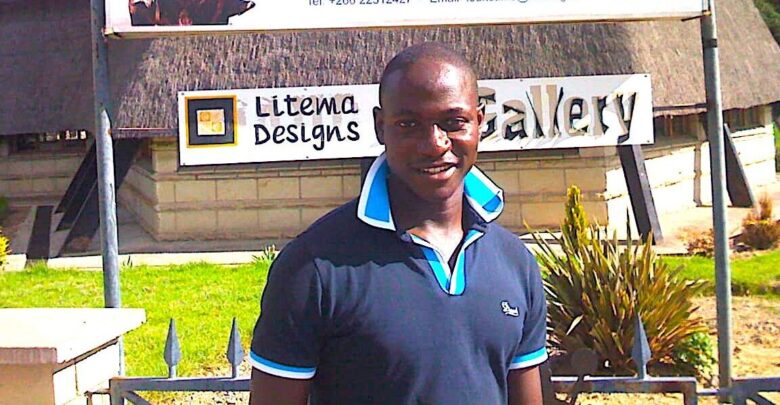
In my seventh post of Q & A Series with Locals, I interviewed Musa from Uganda. I met Musa via Couchsurfing in Kampala, Uganda. I stayed at his home for a couple of days. It was quite easily one of the best Couchsurfing experiences I ever have. He gave up his own bed to accommodate me. We had some really interesting and diverse conversations. Musa is a pure-hearted person with a beautiful mind. Thanks a lot for doing it, Musa. All the best for your future plans!
Q & A WITH MUSA FROM UGANDA
Please tell us about yourself.
Conventional wisdom suggests that people love talking good about themselves, sometimes what we say doesn’t best describe us, it is just a hint into our world… so often exaggerated! But hey I’m one of those people that prefer to let people describe me based on their experiences with or around me; I believe that’s the best description one can ever have of themselves. The following is true about me; so I believe Like most humans on earth, I have a name and my name is Musa Kayiwa, was born and raised in Kampala, Uganda. People say I have a good sense of humour, I get along with most people. I don’t easily get disturbed by downs of life. I love meeting and being around people. Camping, Swimming, cooking and travelling are my favourite hobbies, I’m an active scout and usually go to scout camps whenever I can. I’m an upcoming philanthropist and the founder of www.nestofjoy.org. My Philosophy in life is always look for the good in people after all none of us is perfect.
How many Countries/States have you visited so far?
I have visited some 12 countries. All of them are in Africa: South Africa, Botswana, Lesotho, Nigeria, DRC, Swaziland, Kenya, Rwanda, Tanzania, Zimbabwe, Zambia and Angola.
How would you describe people from Uganda?
Uganda is one of the most hospitable countries one can ever visit. The people are generally very kind, carefree and always put on a smile that sometimes masks daily life hustles like poverty. Uganda is also such a diverse country demographic wise with over 50 tribes. Baganda in Central Uganda is the largest tribe making up to 16% of the total population i.e. 42 million inhabitants as of 2018. The name Uganda, the Swahili term for Buganda, was adopted by British officials in 1884 when they established the Uganda Protectorate, centred in Buganda). Other dominant tribes include Basoga, Bagisu in the East, Lugbara, Acholi and Lango in the North and Banyankole, Bakiga in the West. The current president Yoweri Museveni hails from the West, former dictator Idi Amin was from a small lesser known tribe known as the Kakwa.
How would you describe Uganda?
Hailed as the “Pearl of Africa” by Winston Churchill, Uganda is a country of staggering natural beauty, a lush green land, whose stunning and diverse countryside supports incredible wildlife – lions, elephants, cape buffaloes, leopards, rhinoceros, and half of the world’s population of Mountain Gorillas and Chimpanzees. Uganda is a country with more than 50 tribes all crammed in 241,038 sq km. Uganda has basically two seasons, wet and dry, there’s no winter. It either rains or shines.
How well does people in Uganda speak English on a scale to 1-10?
More than 40 languages are spoken in Uganda. Luganda is the widely spoken language in Uganda. There’s a misconception that Swahili is widely spoken in Uganda which isn’t the case. English is also one of the official languages in Uganda and widely spoken especially in urban centres. I would give it a 6.
How to say some key phrases in local languages?
Below are some of the phrases in Luganda:
Oli Otya (How are you)
Wasuze otya (Good morning)
Sula bulunji (Good night)
Nyabo (Madam)
Ssebo (Sir)
“Jambo” borrowed from Swahili is a quick “Hi” by someone in a hurry as they pass by.
“Uganda Zaabu” which means Uganda is gold.
“Mzungu” is the local word for a white person. It’s not an insult and you will be called by this more than your name has ever been called especially by local kids


Which is the best/essential local food to try in Uganda?
Uganda is gifted with a lot of unique and tasty food and fruits, don’t forget to try Nseenene (grasshoppers), Jackfruit and Matooke. Also, Don’t miss eating the famous street food “rolex” i.e. an omelette wrapped in a chapatti.
Which is the best/essential local drink to try in Uganda?
A Cup of pure Ugandan coffee! Coffee is Uganda’s top earning export crop.
Which is the best/essential festival to attend in Uganda?
Nyege Nyege Festival. It is dubbed as The Biggest Electronic Music Festival in East Africa. It is generally held in the month of September at Jinja Town.
Which sport are people in Uganda crazy about?
People in Uganda are crazy about Football especially the English Premier League.
Which are the best cities/places to visit in Uganda?

- The Source of the River Nile in Jinja (also known as the birthplace of the mighty River Nile): The world’s longest river starts it’s 4000 miles journey to the Mediterranean sea through Sudan and Egypt from Lake Victoria in Jinja which is about 90 mins ride from Kampala, The capital city of Uganda.
- Local food markets in Uganda like Kalerwe: Kalerwe Market is one of Uganda’s largest markets and is located on Gayaza Road i.e. 5 km from Kampala City centre. The market sells primarily fruits, vegetables and meat which usually comes in early mornings or late evenings from all parts of the country and is known for its bargain prices as compared to other markets like Nakasero and Wandegeya. I’m lucky to live just 10 minutes walk from this famous market.

- Bwindi Impenetrable National Park for Gorilla Trekking: The Bwindi Impenetrable Forest is a large forest located in Kanungu District in Western Uganda. It is home to some 400 endangered Mountain Gorillas which is roughly the half population of these majestic creatures left in the world.

- Murchison Falls: This doubles as a waterfall and a National park. The waterfall is located between Lake Kyoga and Lake Albert on the Victoria Nile. Here the Victoria Nile River surges through a narrow gap with a massive drop creating a spectacular view. Murchison Falls National Park sits on the shore of Lake Albert. Park wildlife includes Hippos, Giraffes, Leopards, Lions, Elephants, Chimpanzees. The Lake Albert Delta is also home to rare shoebill storks.

- Lake Bunyonyi: One of the deepest lakes in Africa. It is surrounded by many Islands. A must visit place when in Uganda.

- Fort Portal: The city is known as a “Tourism City Of Uganda”. This beautiful city is very popular among foreign tourists.
What are the landmarks and hidden gems of Uganda?

Ssese Islands: The Ssese Islands are perhaps Uganda’s best-kept secret. These beautiful islands are a piece of paradise surrounded by water in a landlocked country. The Ssese Islands are found on Lake Victoria, the second largest lake in the world which is shared by Uganda, Kenya, and Tanzania. These islands are beach paradise even though there is no sea or ocean shore. These islands are 84 altogether and this collection of islands has sandy beaches, exotic plants, flowers and palm trees.
Gaddafi National Mosque: Do make sure to climb to the top of the minaret as this will give you a 360-degree view of Kampala, the capital city of Uganda. The foundation for this project was laid by the late Ugandan president Idi Amin after securing support from Saudi Arabia but after he was overthrown, the project was stalled. It was completed in 2006 with funds from the late Libyan leader Col Muammar Gaddafi. It was officially opened by him in 2007 and subsequently named The Gaddafi National Mosque but in 2013, the mosque was renamed the National Mosque following the death of Libyan leader Col Muammar Gaddafi, as the new Libyan administration was reportedly reluctant to rehabilitate the mosque under the old name. The former name “The Gaddafi National Mosque” is still more commonly used than the new one though. It has a sitting capacity of 15,000 worshipers.

The Baha’i temple: It is one of the only seven Baha’i temples in the world and the only one in Africa. This temple belongs to Baha’i faith. It is a religion teaching the essential worth of all religions and the unity of all people.

- Sipi Falls: It is a series of three waterfalls lies on the edge of Mount Elgon National Park near the Kenyan border. Sipi Falls area is the starting point for many hikes up Mt. Elgon. Sipi is named after the ‘Sep’, an indigenous plant found on the banks of the River Sipi. It is a medicinal plant, the translucent green frond with a bolt of a crimson rib used for treating measles and fever.
Please share an Interesting trivia about Uganda?
The Equator lies in the Kayabwe Mpigi district. The spot is marked by a circular landmark along Masaka Road and was built during the regime of the late Idi Amin. Here you can place one foot in the Northern hemisphere and the other foot in the Southern hemisphere of the world. The Ugandan equator markers can also be found near Entebbe and just outside Queen Elizabeth National Park in Kasese district. Interesting facts about the Equator are You are 3% lighter along the Equator, The Earth is widest at the Equator, It’s warm along the Equator with little seasonal variation but humid weather means that equatorial regions are not the hottest in the world, Areas along the Equator have constant twelve hours of day and night throughout the year.
Take all of Sub-Sahara Africa and boil it down to its condensed version and you have Uganda.
Uganda is home to 11% of the birds found in the world – over 1060 recorded species of birds – making it the number one country in Africa for Birdwatching. Uganda is the most bio-diverse country in East Africa
What are the most popular stereotypes/cliches about Uganda?
Mention Uganda to someone when you visit their country and chances are they will respond with “Idi Amin” the late dictator overthrown in 1979. He is still the most known personality from Uganda even more than the current president of 34 yrs.
Which is the best time to visit Uganda?
January and February / June to September. The weather is perfect, dry season with little or no rainfall.
Are there any local customs a visitor should be sensitive to?
There are no local customs as such, especially for guests/tourists. Some things to know.
Uganda is going through a transition when it comes to gender roles; however, it is still a male dominant society. In most rural areas, women have to wear clothing that covers the legs. Showing too much leg can result in a woman being called the local word for “whore”.
When two people of the same sex are talking, touching is acceptable. It is common to touch the hands, arms, and shoulders.
Spending time in silence instead of striking a conversation is often times can be interpreted as being rude.
Men almost always wear long pants, even in the hottest weather; shorts are a sign of being a child.
When I asked him to share an interesting picture of his. He chose the above one.
On this day August 22, 2016, I met Bobi Wine before he joined politics and became a famed politician. Today he is the most recognised politician in the Ugandan political scene as a leader of the “People Power Movement”: A resistance pressure group.


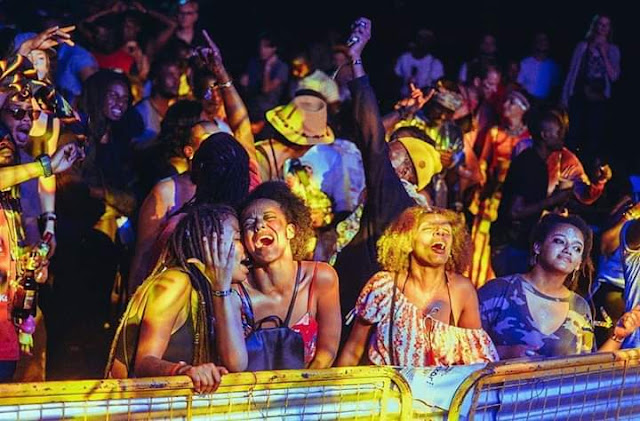

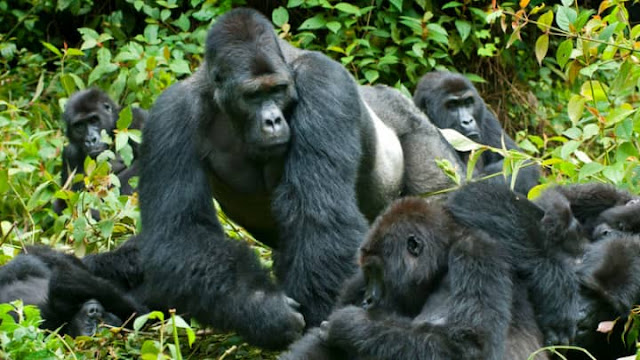

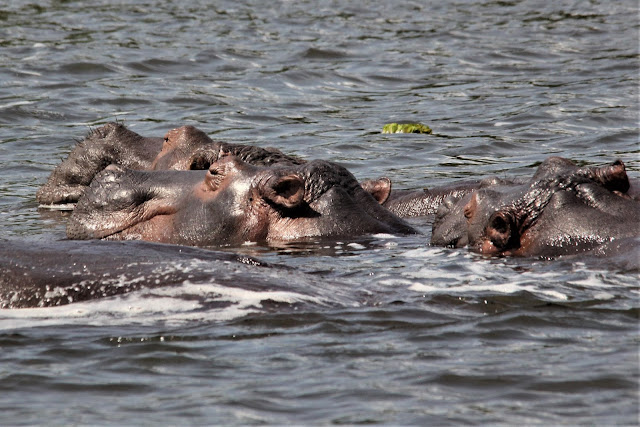


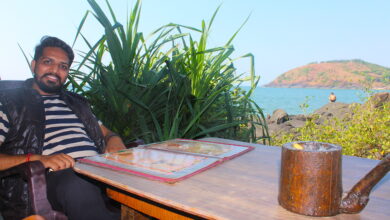
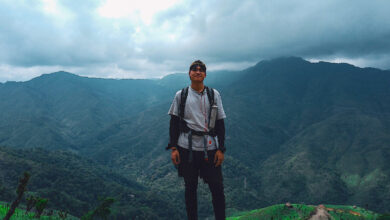
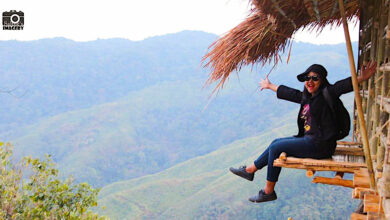
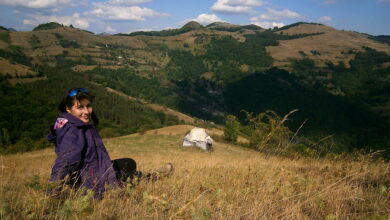
I really enjoyed reading about Musa and his experiences. These are the kinds of stories that really give insight into people and what they’re all about.
Wow, what a really insightful interview. Usually when reading travel blogs, it is rare to hear any other voice than that of the author.
Makes a good change hearing the voice of locals.
Thanks for the wonderful post! I loved all the Q&A’s although I don’t think I could eat any grasshoppers.
Wow, your pictures are amazing! I love that you interviewed a local so we get all the inside scoop!
This is such a wonderful interview. I love meeting and talking with people who have a beautiful mind, experiences, and culture. Thanks for sharing this.
This is amazing how much we can learn while asking questions. Uganda is such a beautiful place to visit and learn about its culture, people, nature.
what a great interview. how interesting about men wearing shorts being perceived as a ‘child’.
I had never heard that phrase by Winston Churchill before, but I love it. And I think he was right. Plus I love all of the waterfall pictures. So amazing!
Your blog post is beautiful because it tells the beauty of Africa what TV and communication are often forgotten about.
Nnnniiiiccceeeeee….that’s my home right there! Uganda is everything.
Uganda sure looks like a great place to visit. The animals, beautiful scenery, and historic buildings would definitely be on my visit list!
This was such a great Q&A. Is good to know more about local places with local people, is the best inside scoop you can get from a place. It will be awesome to go to one of those festivals.
Such a great interview. Makes me want to visit Uganda!! I was hooked when he said he liked camping, swimming, and cooking! haha
What a beautiful place! I love the variety of the flora and the fauna, so many things to see, I would love to visit sometime soon.
I find the people and culture from Uganda an amazing experience. This just recreates a connection that we really need to keep with different people and cultures.
I would love to visit Uganda someday. I have just returned from Tanzania a few months ago, and the word “mzungu” reminded me of the trip there. They use it a lot as well, same as “Jambo”
very interesting! it totally helps you to understand life around the globe better
I’ve always wanted to try Couchsurfing! Musa seemed like a nice host to accomodate you. Also, I never knew that 40 languages are spoken in Uganda.
So fun to read pov from locals’ eyes. Always wanted to go to Uganda, hopefully soon! Looks amazing!
What a beautiful place ! I will definitely add it to my bucket list !
Thanks for sharing !
Look at that wildlife. It must be a great time to go there.
I always read about how wonderful Uganda is. I would love to visit there one day in the future for sure.
Great interview that brought a nice insight about Uganda and the places to visit there.
I love that you have a global Q&A series on your blog, and this was an interesting snapshot into Uganda. I was interested to hear about the local delicacies and as a vegetarian I do enjoy jackfruit.
Well..this blog post seriously seems to be very interesting and amazing to know more about..Thanks for sharing the interview..Great work..Loved this…
Whta a wonderful post and I am for sure loving all of these wonderful pictures. I would love to visit there myself and appreciate your haring. I especially would love a cup of pure Ugandan coffee!
What a detailed read! Prior to reading this, I didn’t know much about Uganda. I’m definitely adding this to my bucket list now. I also loved all the pictures!
I love learning about different places, and you shared a lot of great info here. It’s good to know about the gender roles as a visitor especially. All in all in looks like a beautiful place to explore. Not sure I’d try the grasshoppers though!
I love the concept of interviewing people from different social and cultural backgrounds. This Q & A with this young guy, Musa from Uganda really enhanced my knowledge about the local culture and diversity of Uganda. I also loved the pictures, the place seems really beautiful and diverse.
Gorilla trekking sounds incredibly fun. I cant wait to read about more of your adventures. 12 countries down… many more to go
Wasuze otya! I am a polyglot and I find it amazing that Uganda speaks more than 40 languages! I haven’t been to this side of the earth but I would love to see Murchison Falls some day. Great interview!
What a great interview! I never knew there was so much to see in Uganda! My dad’s been before years ago and I know he’s always talked about going back.
I have never had the pleasure of visiting any countries in Africa although Uganda sounds like a wonderful place to visit! I’m really curious to see how the grasshoppers are cooked! I have had them covered in chocolate before, haha!
I enjoyed reading about Musa and his experiences. It was interesting hearing about his culture.
The way he described it made me want to go and visit the place. It seems really worthy of being explored.
Hi good people, Musa here, It’s such a pleasure to be featured on this wonderful blog. You too can be my guest next time you make a stop over.
Stay blessed